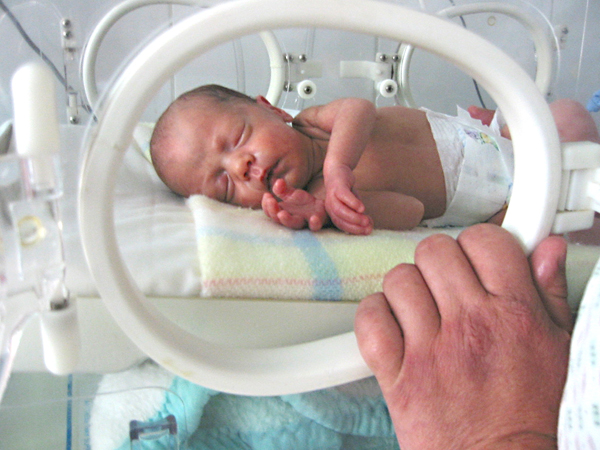- South Texas Students Meet Accordion Music Icons Los Tigres Del Norte In Edinburg Thanks To Khs America/Hohner Alianza Académica Initiative
- Fragile Planet Offers a Nighttime Wildlife Experience
- Falcons Soccer Off & Running
- Cameron County Receives Funds to Improve Two Parks
- Falcons Complete First Half of 32-6A
- School District to Help out Victims of California Wildfires
- Sand Castle Days Continued Despite Unexpected Weather
- Ready for District
- Discussion of Garbage Dumpster Rates, Agreements Between State & City on Highway Regulations, and More
- 31st Annual Shrimp Cook-Off is Right Around the Corner
Texas Key in Nationwide Effort to Reduce Premature Births
- Updated: December 1, 2014
by John Michaelson/TNS
HOUSTON – The latest figures show the preterm birth rate in Texas continues to fall, but the progress is slow and that could hamper goals nationwide for healthier babies. As of last year, the U.S. premature birth rate had fallen to 11.4 percent. In Texas the rate was nearly a percent higher, says Dr. Charleta Guillory, neonatologist at Texas Children’s Hospital.
“We have a very high rate of premature births,” says Guillory. “Because you have about four-million deliveries in the country, 400,000 here in Texas, we knew we really had to make a dent in that number in order to decrease prematurity nationwide.”

The preterm birth rate in Texas continues to trend down, with seven straight years of declines to reach 12.3 percent as of 2013. Photo: César Rincón/Flickr.
The March of Dimes is leading the campaign to reduce the nation’s preterm birth rate, with a goal of 9.6 percent or less by 2020.
Often, the specific cause of premature birth isn’t clear, but factors that may increase the risk include smoking, some infections and some chronic conditions such as high blood pressure and diabetes. Guillory says further understanding of the risk factors and reducing the number of babies being born too soon can save billions of dollars in health and society costs.
“If you have a 24-week-old infant, that baby may stay in the hospital anywhere from three to six months – and if you have complications, even longer than that,” says Guillory. “That means the parents are dealing with life and death almost every day in the neonatal intensive care unit.”
Premature birth is the leading cause of newborn death, and babies who survive often face the risk of serious and sometimes lifelong health issues. They include breathing problems, developmental delays, vision loss and cerebral palsy.
